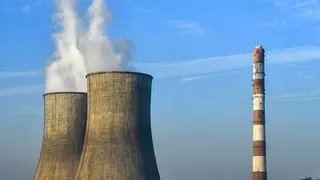India’s copper import bill has seen an over 20 per cent jump, in value, year-on-year, in FY23 to ₹27,131 crore, as against ₹21,985 crore following a post-Covid economic recovery and improved demand, especially across electric vehicles and renewable energy segments.
Copper’s demand is said to have a direct correlation with economic activities considering its wide usage across constuction, home appliances, and other sectors.
As per a report by consultancy firm ICRA, refined copper imports increased by 30 per cent in FY23 (by volume) and 180 per cent in H1 FY24.
Also read: Auctions for 20 critical minerals worth ₹45,000 crore launched
Due to low availability and increased usage, copper and copper concentrates are primarily imported into India; and forms the raw material from which refined copper is produced.
Production capacity
India’s current refined copper production capacity is 5.55 lakh tonnes in FY 2022-23, making it the 10th largest producer of the metal, as per government estimates.
According to a response by Pralhad Joshi, tabled in the Rajya Sabha, the spurt in imports in last two years is due to increased demand in copper refining, which reflects “a post pandemic recovery”. “(The recovery is) driven by growth in user sectors such as infrastructure, construction, telecom, electrical, renewable energy and electric vehicles,” he said.
Also read: Mines ministry proposes new set of royalties for 12 critical minerals
Incidentally, copper is one of the 30 critical minerals identified by the Centre, earlier this year.
Domestic refined copper demand growth is expected to remain at around 11 per cent in FY24 and FY25, as per estimates put out by consultancy firm ICRA, thereby outpacing the rate of global growth in copper demand.
In India, some 40 per cent of the copper is consumed by infrastructure and construction sector; and,11-13 per cent each across automobile and consumer durable sectors respectively, apart from push for affordable housing and EVs.
“However, a new copper smelter of 0.5 million MT (mmt) by the Adani Group is expected to start from FY25 onwards which, once stabilised, is likely to reduce the deficit situation to an extent,” the report mentioned.
Push for critical minerals
A new mineral concession namely, exploration licence, for 29 deep-seated and critical minerals including copper has been introduced through the Mines and Minerals (Development and Regulation) (MMDR) Amendment Act, 2023. Under this, the licensee is permitted to undertake reconnaissance and prospecting operations for critical and deep-seated minerals, which are otherwise difficult to explore and mine.
Exploration license is aimed at encouraging the participation of private agencies so as to bring advanced technology, finance and expertise in exploration of critical minerals.
Also read: India back to being a net importer of steel in the April-Nov period
Further, accredited private exploration agencies notified under the MMDR Act have been allowed to carry out exploration without prospecting licence and are made eligible for funding under the National Mineral Exploration Trust.
“The measures are intended to boost domestic availability of copper mineral and reduce its import,” Minister Joshi mentioned in his response.







Comments
Comments have to be in English, and in full sentences. They cannot be abusive or personal. Please abide by our community guidelines for posting your comments.
We have migrated to a new commenting platform. If you are already a registered user of TheHindu Businessline and logged in, you may continue to engage with our articles. If you do not have an account please register and login to post comments. Users can access their older comments by logging into their accounts on Vuukle.